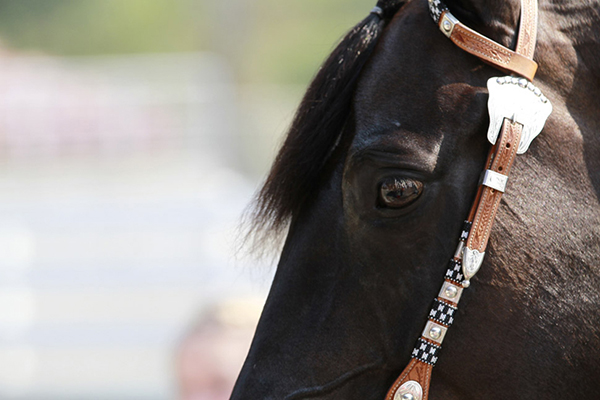Study Shows Effect of Lockdown on Horses and Owners

Equine Science Update
By: Mark Andrews
The impact of the COVID-19 lockdown on horses, owners and people working with them, has been
studied in new research. The work was conducted at Scotland’s Rural College (SRUC) in collaboration with the Waltham Petcare Science Institute, during the lockdown restrictions imposed by the pandemic.
It showed that the coronavirus lockdown had a negative impact on the mental health and wellbeing of horse owners. It also highlighted the need for guidelines on care of horses and ponies at risk of obesity and laminitis during such restrictions.
The researchers explored how horse owners and those working with horses were affected by challenges brought about by the Covid-19 lockdown.
The study questioned 22 members of the equestrian community in Aberdeenshire, including horse owners, equine veterinarians, and farriers, as well as two welfare centre managers in England. A report of the work is published in the journal Animals.
Findings from the interviews indicate that pandemic-related obstacles to communication and limitations on horse owner interaction with their animals were sources of distress and frustration for interviewees.
The report also highlighted the stress placed on equine veterinarians who could be at risk of overwork and burnout as they managed their responsibility to protect public health during emergency scenarios such as the pandemic.
However, the study also identified several positive outcomes where the equine community undertook action to help overcome financial stresses and social isolation.
Ashley Ward, PhD student and lead author of the report, said: “From this study, we have been able to better understand the importance of human-animal interactions and the role that horses played in lessening the detrimental impacts of isolation and anxiety associated with uncertainty around lockdown.”
She added: “It is also of note that the pro-social actions undertaken by individuals to benefit the community had the potential to improve the wellbeing of those undertaking the activities – as well as the community they sought to benefit.”
“It is hoped that such information will promote action within the industry to protect the mental health and wellbeing of its community, using actions which combat the issues raised in this research.”
In a related study, published in the journal PLoS ONE, the research team assessed the impact of the pandemic on the management of horses and ponies susceptible to laminitis.
Their findings suggested that recommendations for supporting the management needs of horses under reduced supervision were not clearly defined, or were not sufficiently disseminated, across the equine industry.
“We discovered that lockdown-associated factors had the potential to compromise the welfare of horses and ponies at risk of obesity and laminitis,” said Ashley Ward. “These included: disparate information and guidance, difficulties enacting public health measures in yard environments, and horses having reduced exercise during the pandemic.”
“Our conclusion was that guidelines should be developed for the care of horses and ponies at risk through collaborative input from veterinary and welfare experts. This would help to reduce the negative impacts of future lockdown events in the UK.”
For more details, see:
The Human Aspect of Horse Care: How the COVID-19 Pandemic Impacted the Wellbeing of Equestrian Industry Stakeholders
Ward A, Stephen K, Argo C, Watson C, Harris P, Neacsu M, Russell W, Grove-White D, Morrison P.
Animals 2021, 11(8), 2163
https://doi.org/10.3390/ani11082163
COVID-19 impacts equine welfare: Policy implications for laminitis and obesity.
Ward AB, Stephen K, Argo CM, Harris PA, Watson CA, Neacsu M, et al. (2021)
PLoS ONE 16(5): e0252340.










